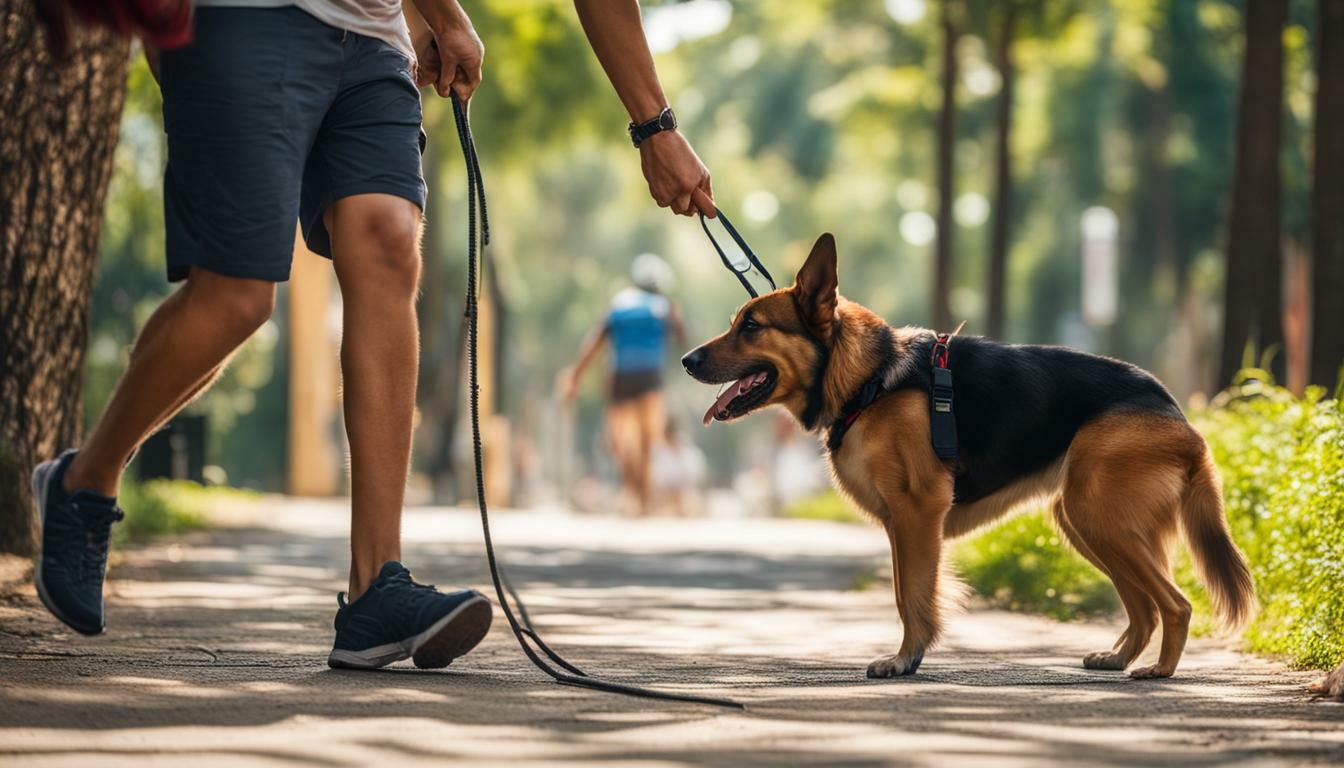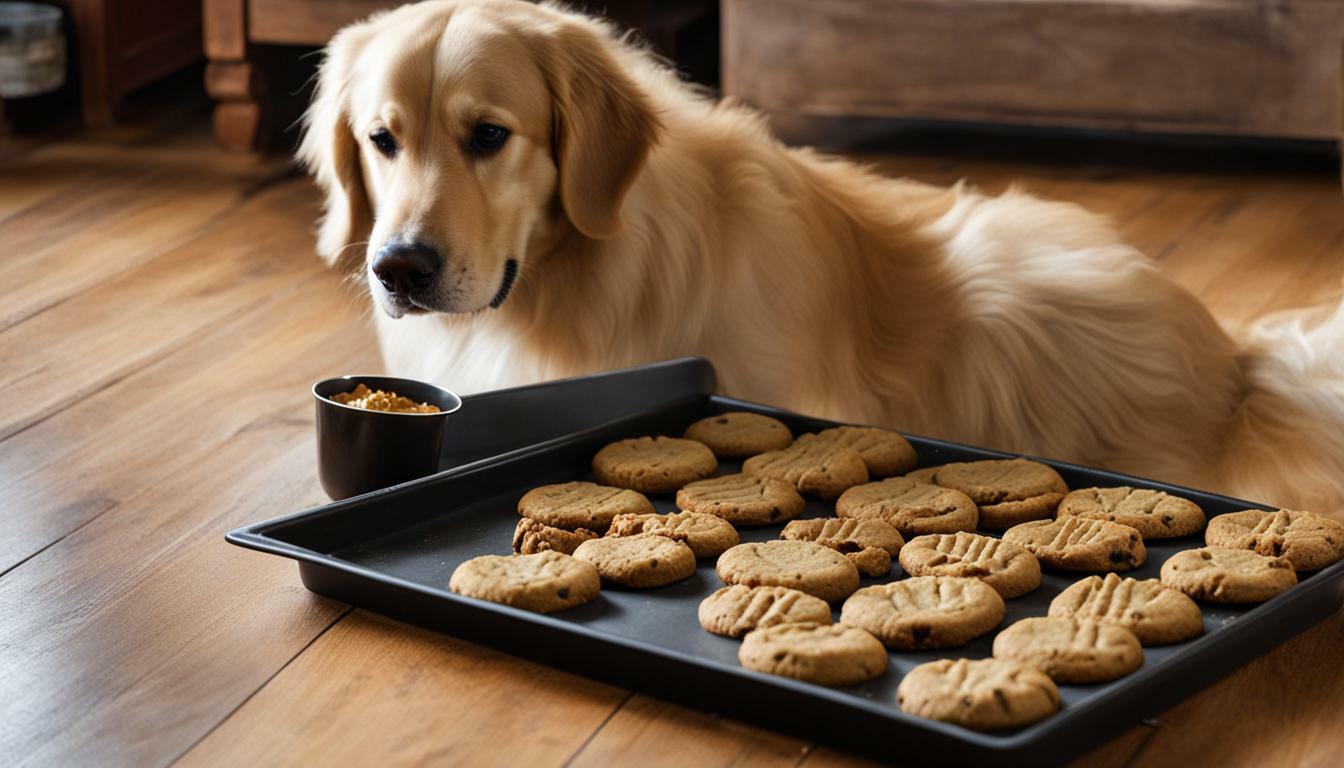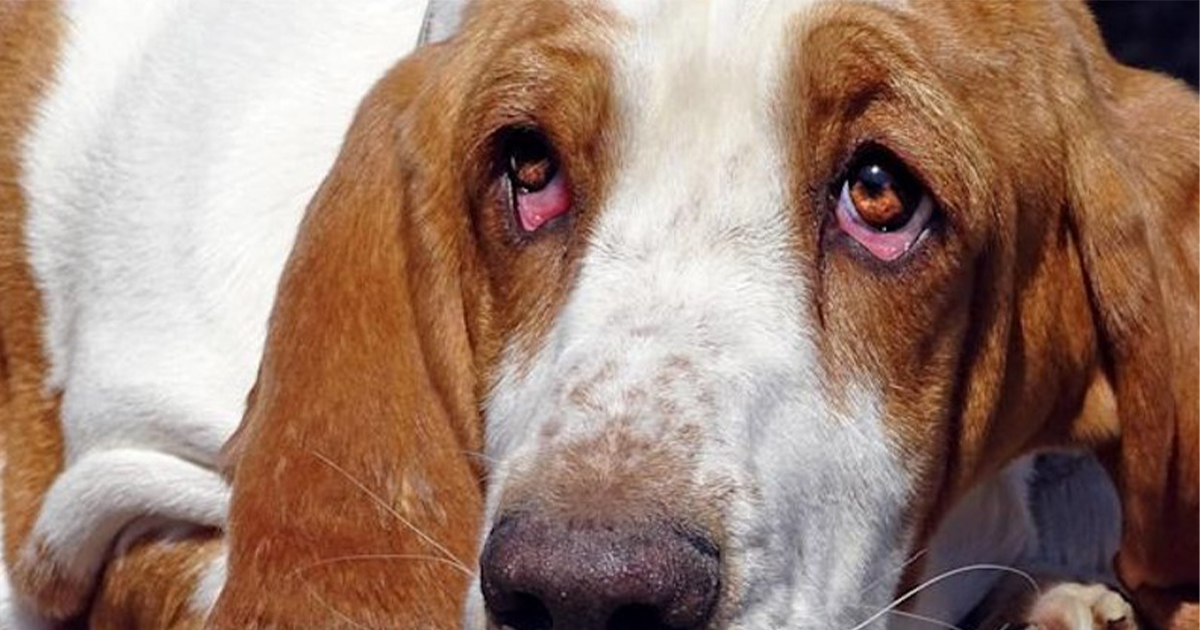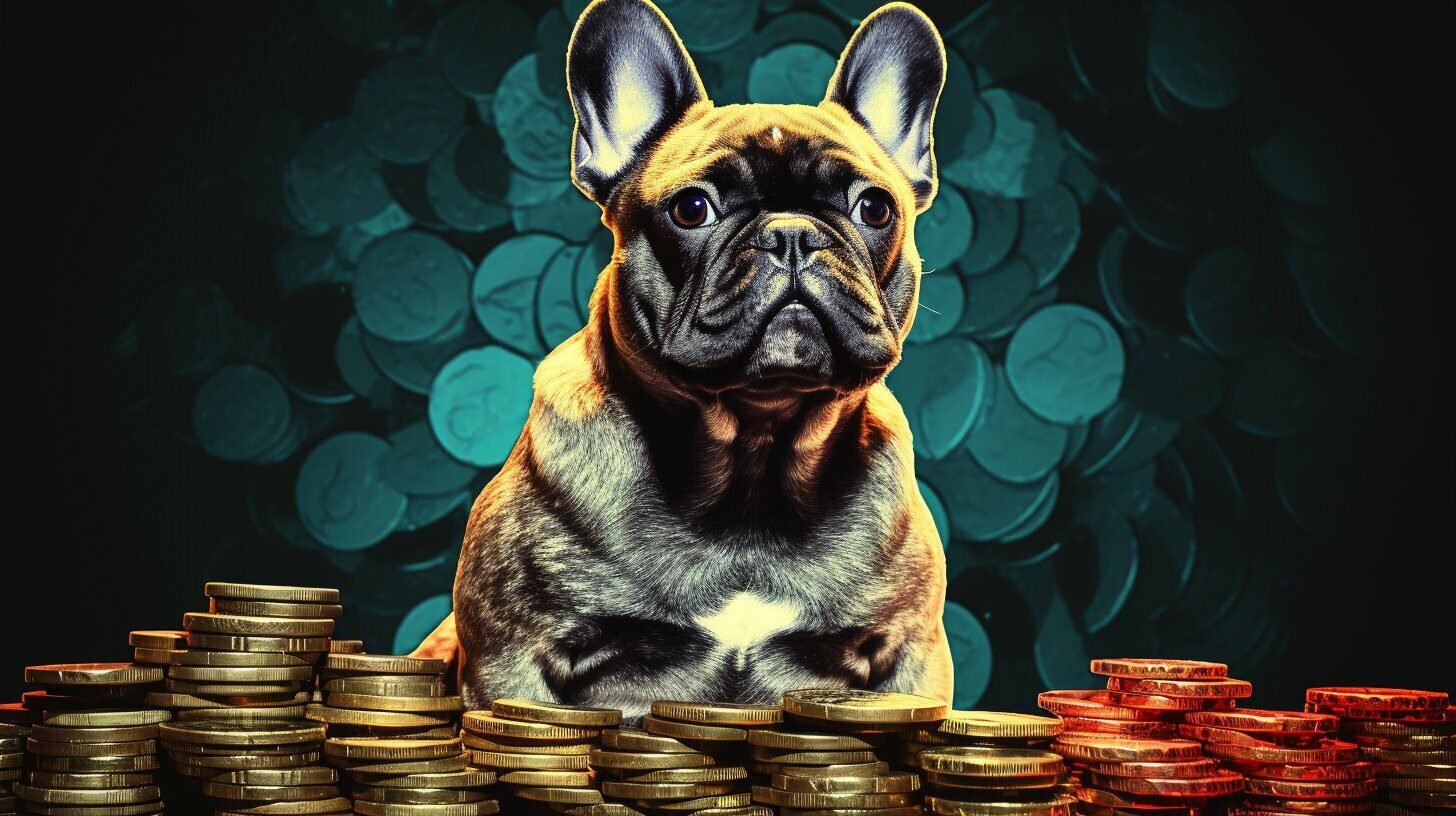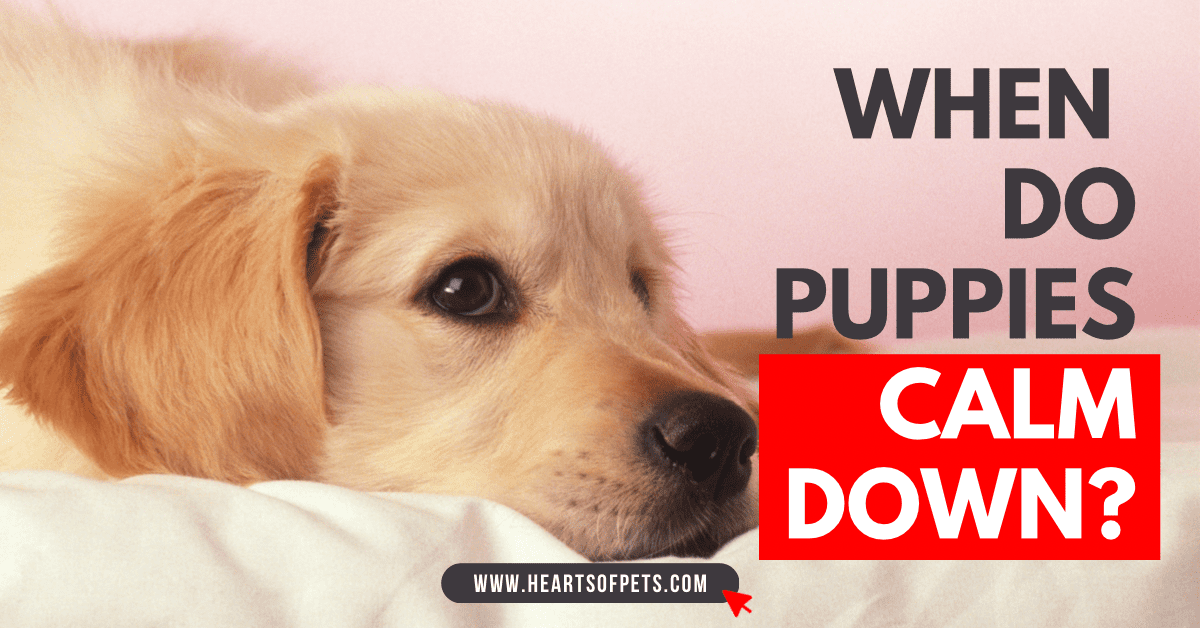
Puppies are adorable; if you’ve ever owned a puppy, you know that they are full of energy and can be very unruly, especially during their first few months at home. It’s easy to get swept up in the excitement of bringing one home, though their energy levels can be challenging for pet owners to keep up with. But when they start showing energetic exuberance and relentless behavior, you might wonder when your little ball of fur will start to act like an adult dog and become less chaotic and destructive. So, when do puppies calm down?
Puppies, especially a new puppy and different dog breeds, simply have a higher energy level compared to other dogs. Your puppy lives to explore the world and learn new things, and as your puppy matures, eventually, they will remain calm more often.
Luckily, there are things you can do to control your puppy’s energy levels and help your puppy adjust and adapt more quickly to his new life at home with you.
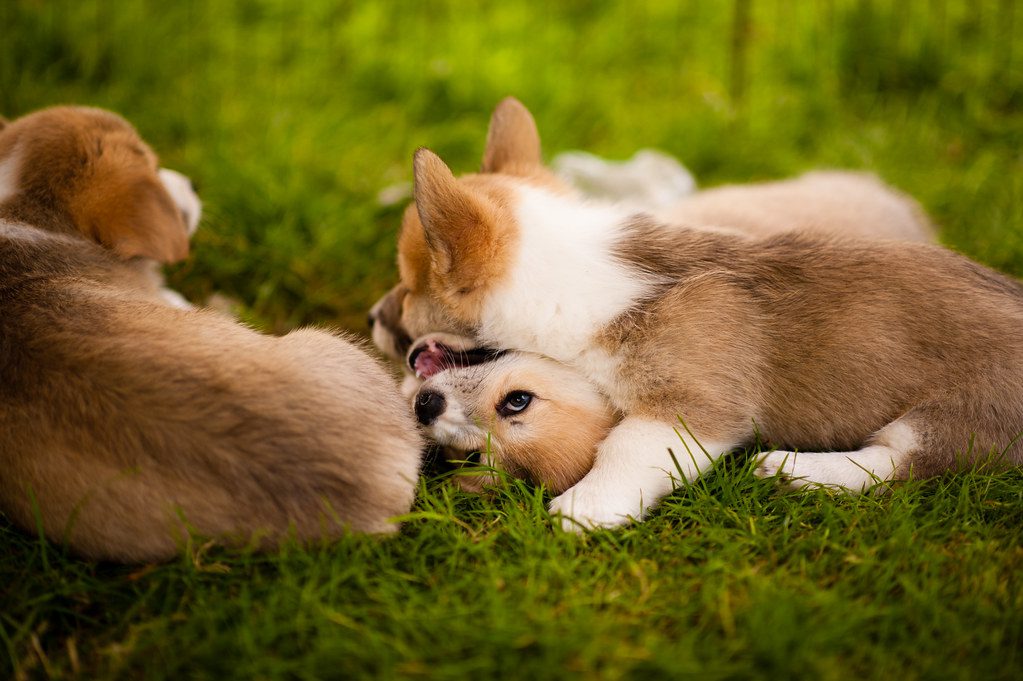
What You Should Know About Having A Puppy
Puppies are a lot of work; and so is their puppy energy. They must be house trained or undergo training sessions with professional trainers, socialized, and given plenty of exercise. On top of that, they have a lot of energy and can be very playful. So when will your hyper puppy calm down? The answer is: it depends. Each puppy is different and will mature at different rates. Some may calm down as early as six months old, while others may take up to 2 years to reach full mental maturity. An energetic puppy is quite typical and their puppy energy levels are no joke; if you are looking for a calmer dog, adopting adult dogs might be the answer!
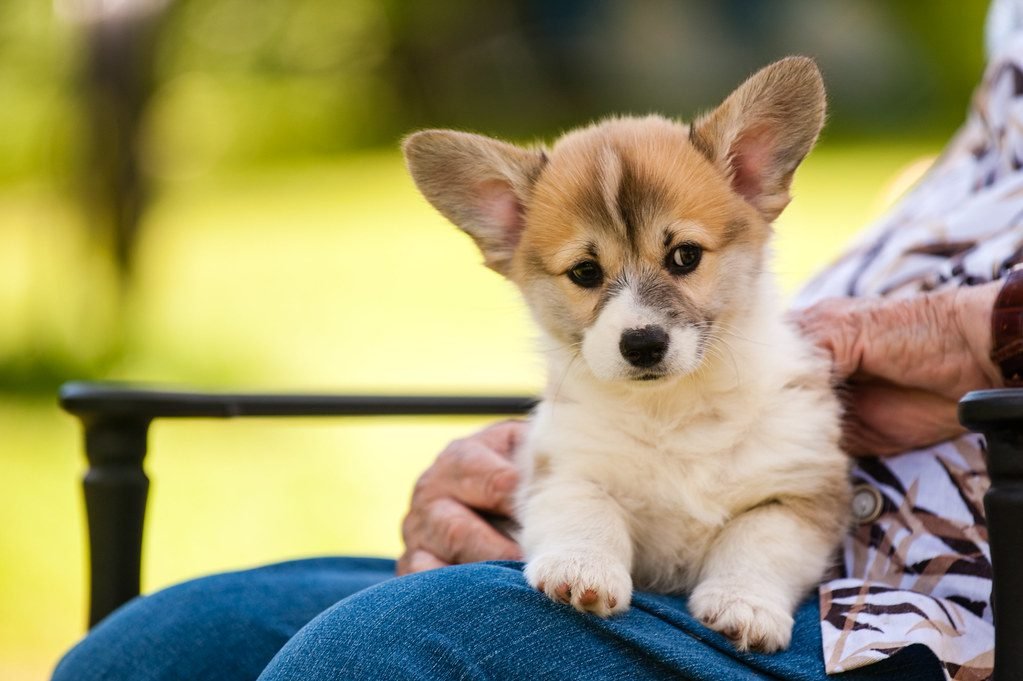
You can’t be sure when your puppy calms. There are also other factors to consider, like breed and sex. Males typically take longer than female dogs because their growth plates don’t close until about 18 months old, but this can vary depending on the breed. And some dog breeds grow slower than others, so your pup might not even hit his full height until 3-4 years old. Your dog’s breed can significantly affect how long he remains in the “puppy stage.”
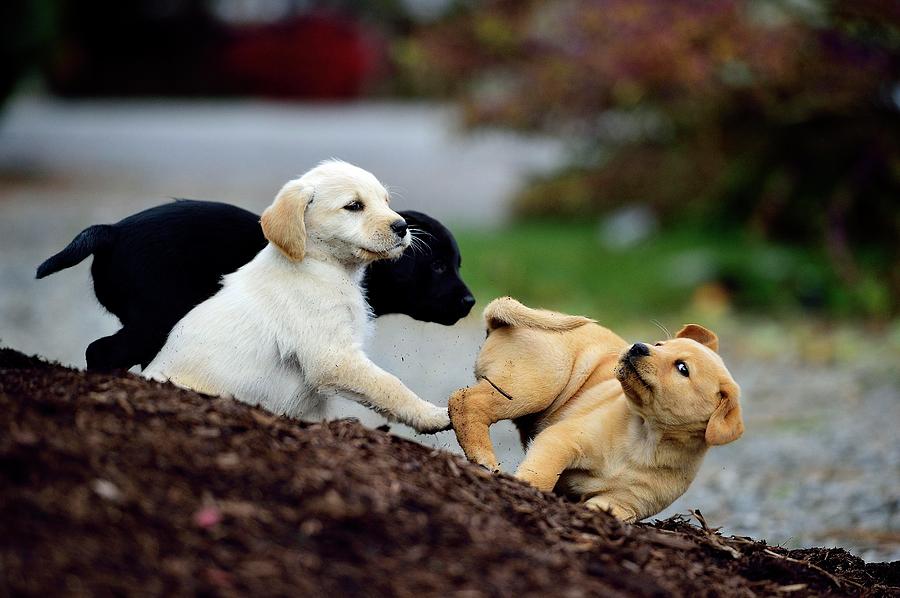
Breed, Gender, And Social Structure
When it comes to puppies, there are a lot of variables that can affect how calm or energetic they are. B breed, gender, and social structure can all play a role in a puppy’s personality. However, you can expect some general things regarding a puppy’s energy level.
Generally speaking, the larger the dog is, the more active it will be. A Terrier will have more energy than a Pug because of their size difference. In terms of gender, females typically tend to be calmer than males. Females generally mature earlier than males as well. If your pup is from a large litter with many siblings, she’ll probably be more energetic as she grows up with so many family members running around her! It might seem overwhelming initially, but by investing time into teaching her commands and getting her used to different people, animals, and situations, you’ll soon find that being an owner benefits and you can see your puppies start to calm gradually.
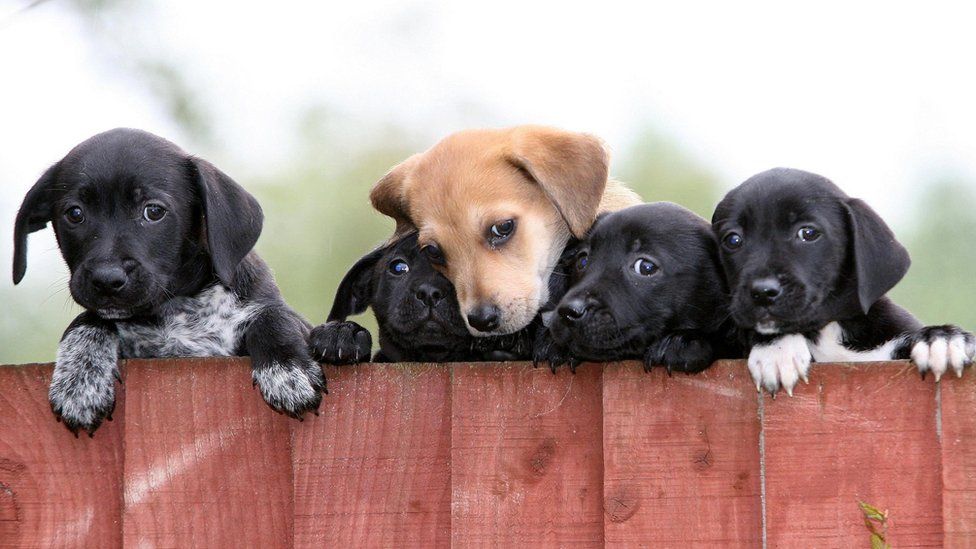
Puppy Energy And Their Development Stages
All puppies are energetic, but that doesn’t mean they’ll never calm down. Most puppies go through several development stages before they reach adulthood. And age do puppies calm them down. Here’s a quick overview of what you can expect:
1. From birth to two weeks old, puppies sleep frequently and nurse frequently.
2. From two weeks to three months old, puppies become more active and playful. They also begin teething during this time, making them bite more. When they’re not biting, though, they’re playing. It’s a good idea to play with your puppy at least twice daily during this period to help their developing muscles. Their mouth will be sore from teething, so keep those toys clean!
3. From three to six months old, puppies will have the mental and physical maturity needed for training. Don’t worry if your pup has an accident or chews on something she shouldn’t – accidents happen! But if these behaviors don’t stop after a few days, it may indicate another issue, such as separation anxiety. Your pup should settle into his adult personality around six months old with proper training and love. If she doesn’t settle in by then (or anytime after), it could be because she is shy or fearful. Speak to your veterinarian about any concerns you may have so they can offer some advice.
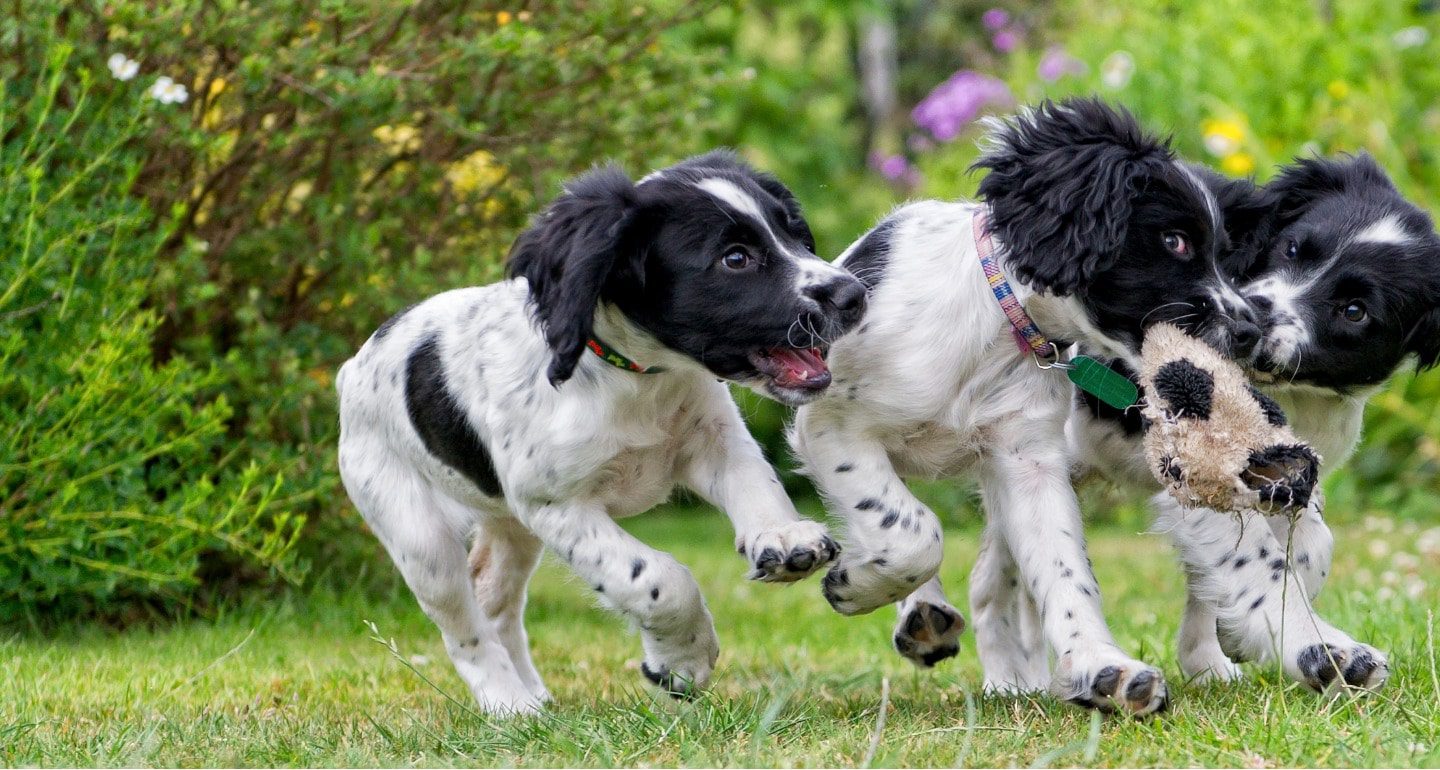
How To Control Your Puppy’s Behavior
It’s normal for most puppies – and some dog breeds – to be rambunctious and want to play. Dog owners can’t deny that the power of puppy energy can be quite exhausting. However, there are ways you can help control their behavior so they don’t become too overwhelming.
One way to do this is by establishing rules and limits as well as appropriate positive reinforcement. This will help your puppy understand what is expected of them and what behaviors are not allowed. Border Collies are one example of extremely energetic breed that requires daily exercise. Make sure that they get at least one hour of exercise each day. You can take them on long walks or throw a ball in the backyard. You should also provide them with mental stimulation by playing games like hide-and-seek or tug-of-war to prevent boredom which leads to destructive behaviors.
Another way to calm puppies is to ensure they’re getting plenty of socialization with other dogs. A dog park is an excellent place for your puppy to expend their energy levels while dog owners simultaneously get a break from needing to keep them constantly entertained. Most dogs will wear themselves out with the opportunity to burn off that excess energy outdoors with other dogs. You might have quite the calm puppy on the ride home, as they had plenty of physical stimulation.
A bored puppy is more likely to be a hyper puppy, so ensure you provide them with chew toys, bones, treats, puzzles, and other things that will keep them busy and less likely to exhibit unwanted behavior. Puzzles also help with the mental development of your puppy, which is nearly as important as physical exercise in a dog’s life. It can also keep your pup’s energy levels at bay.
A complex and fast rule is that your pup’s life should be so busy that they have no downtime. This is precisely how you can manage their boundless, high energy and stop behaviors like destructive chewing and other issues puppies begin to face as they mature and grow.
Another way to manage a puppy’s energy levels is through obedience training. Puppies learn much quicker than older dogs or adult dogs, so enrolling them in puppy training can be an excellent way to teach them house training and reinforce calm behavior.
Not only that, but professional training sessions can also help puppy owners with house training and crate training, which are crucial to puppy development. Getting a puppy to calm behavior can take up to two years, and the puppy’s breed matters. A border collie may mature faster than an Australian shepherd and more quickly than giant breeds. Start training early with your puppy, regardless of their breed, and you’ll have a happy owner and dog in no time.
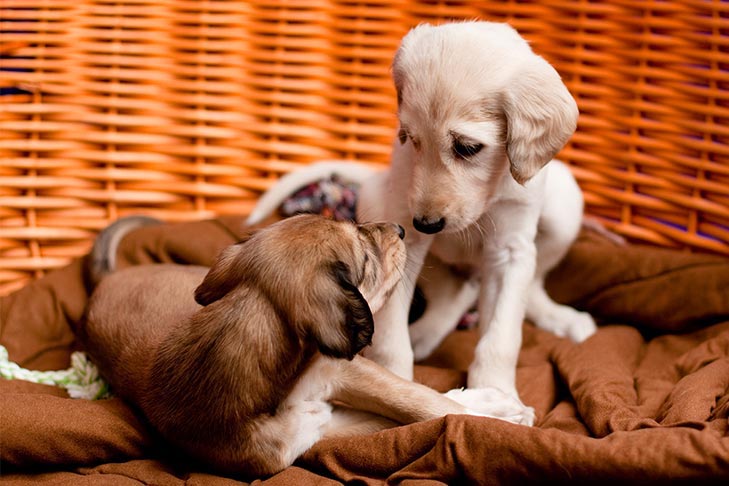
It may take some time for a puppy’s energy levels to calm down even with puppy training, but in no time, he’ll grow into a well-behaved adult dog. And at least for the time being, if he’s not quite there, he’ll at least be a more calm puppy than he was when you started.
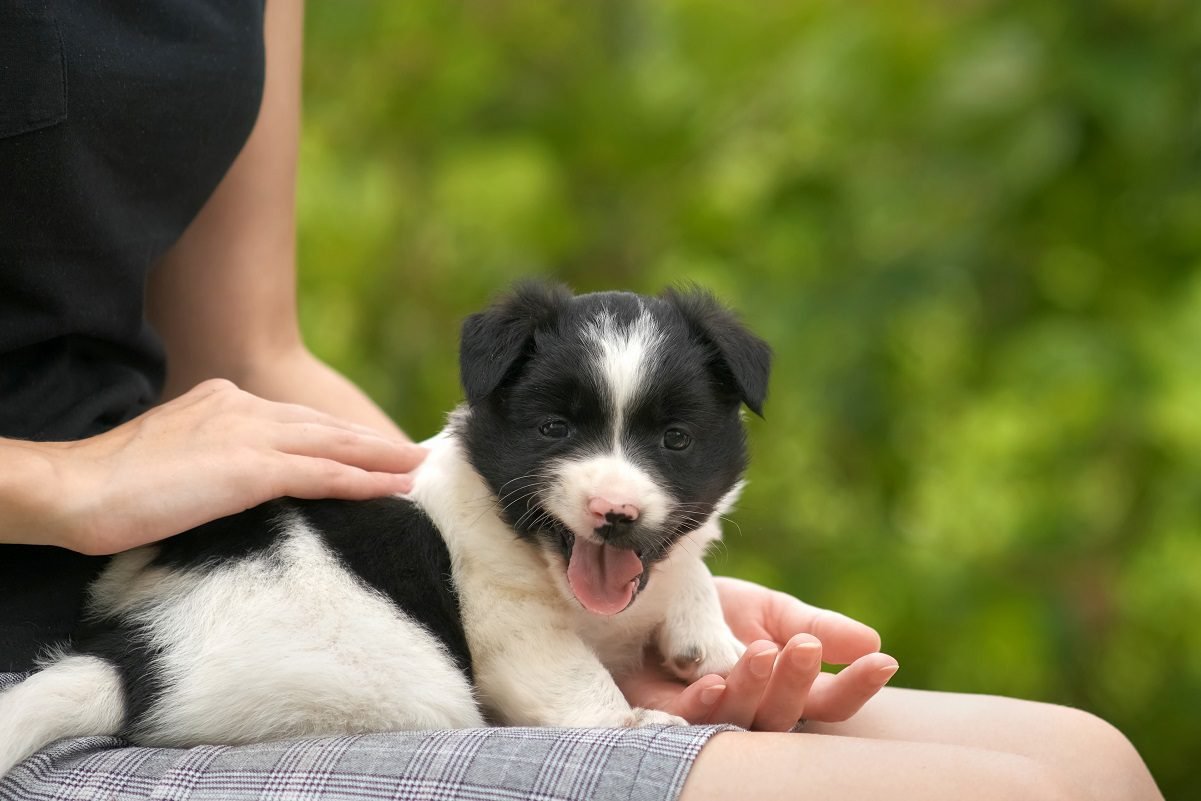
How will you know when your puppy has settled down?
Newborn puppies are full of energy and excitement. They’re exploring their new surroundings, learning about the world around them, and bonding with their new family. This can be a lot of fun, but their high energy can also be exhausting! So at what age do puppies calm down? How much energy is too much? Most puppy owners are troubled with these concerns.
The same age range is unknown, but there are many signs your puppy will exhibit that can indicate its high energy is reaching its peak. A few things to look for will tell you when your puppies start to settle down. First, they’ll start sleeping through the night. Next, they’ll stop tugging on their leash and following you everywhere (especially outside or in a dog park). As your pup becomes more comfortable in her environment and your puppies begin to more comfortable with you or your other family members, it will also start to sleep more during the day.
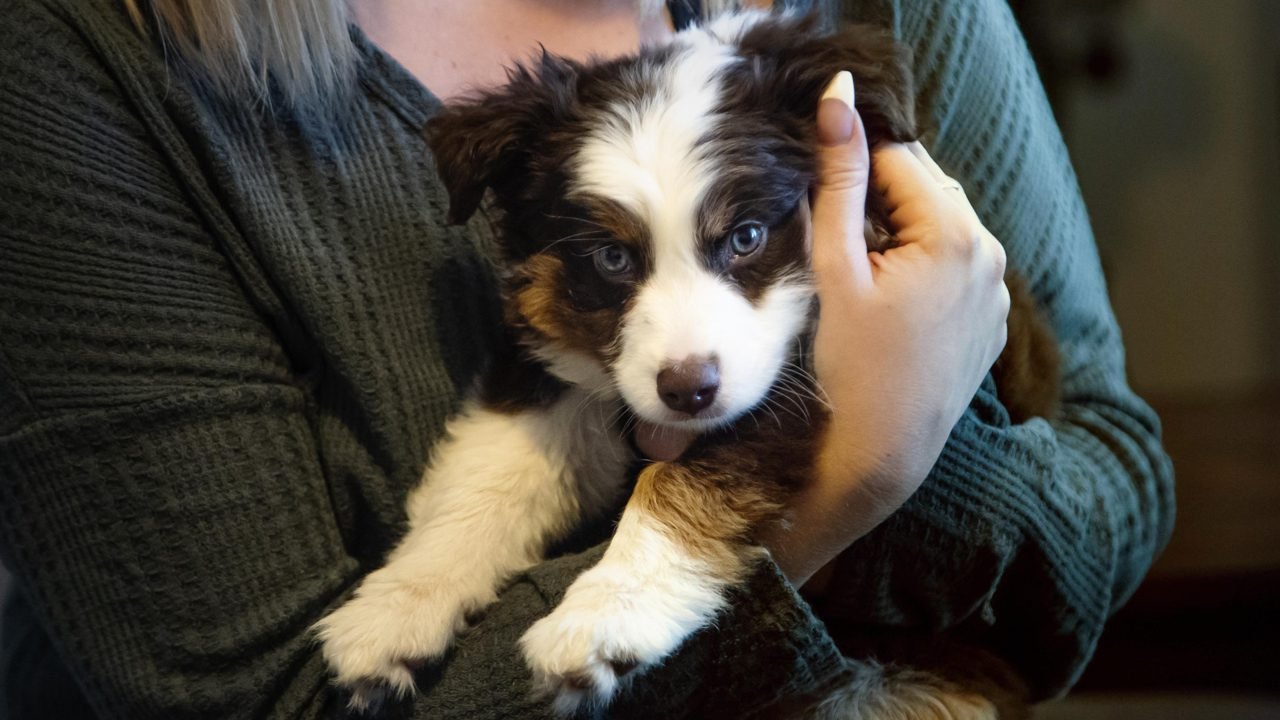
These are all signs that your puppy has begun to relax into his/her new routine. It may take a little while before these changes become apparent; it all depends on how fast your dog learns and how long he or she is in an environment without social interaction before coming home with you.
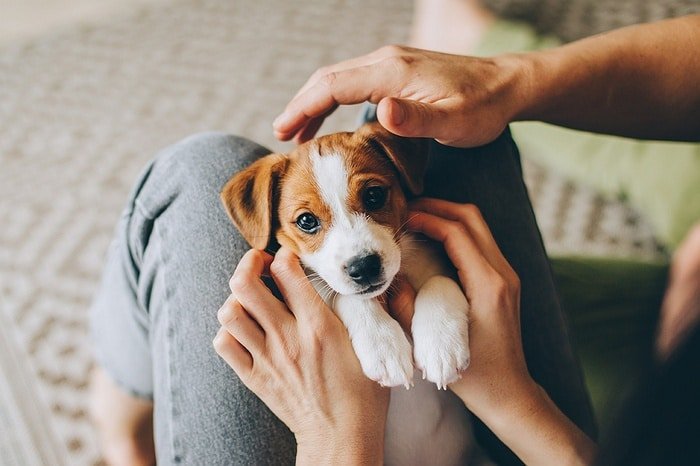
Final Thought
Can your puppy calm down? There’s no one answer to this question since every puppy is different. However, there are some general things you can keep in mind. Most puppies will start to calm down around 6-8 months. This is when they become more comfortable with their surroundings and have had a chance to socialize and get used to their owner’s routines. Training can also help your puppy learn how to control their energy levels better and help them focus. Having a happy dog is one of the greatest achievements a fur parent can fulfill.
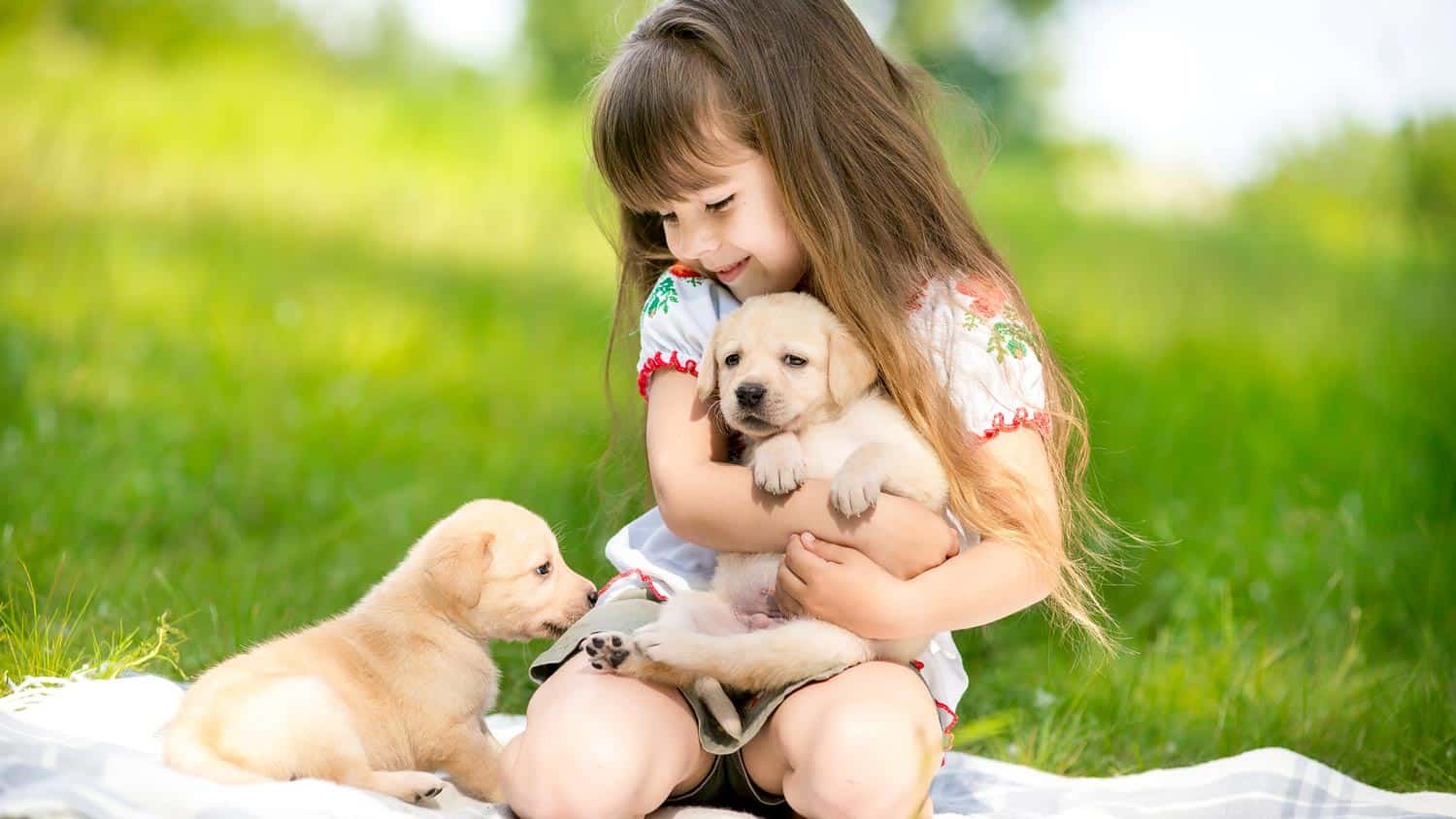
Frequently Asked Questions
What age are puppies most hyper?
Puppies between one and three years old can be quite active and hardly sit still for more than a few seconds. However, they will start to take longer and more frequent rests in between bursts as they get older. As they reach their third or fourth birthday, the majority of dogs start to lose their seemingly boundless energy.
At what age do puppies get easier?
How long until raising a puppy becomes simpler? When pups are 4-5 months old, they are typically potty-trained, able to concentrate for longer periods of time, and have adapted to their new environment. This makes having a puppy simpler.
How long does the hyper puppy stage last?
Between the ages of twelve and eighteen months, puppies normally reach the emotional maturity and temperament of an adult dog, while they may occasionally still engage in puppy behavior like chewing and biting until they are approximately two years old.
Do puppies calm down at 6 months?
Your puppy's physical development may slow down between the ages of six and one while their energy levels may rise, revealing to you a fresher side of their nature. Your dog is now an adolescent at 6 months old after going through a quickly developing juvenile stage from 3 to 6 months.

